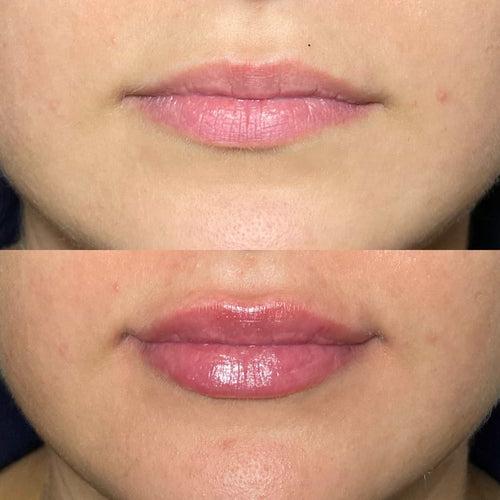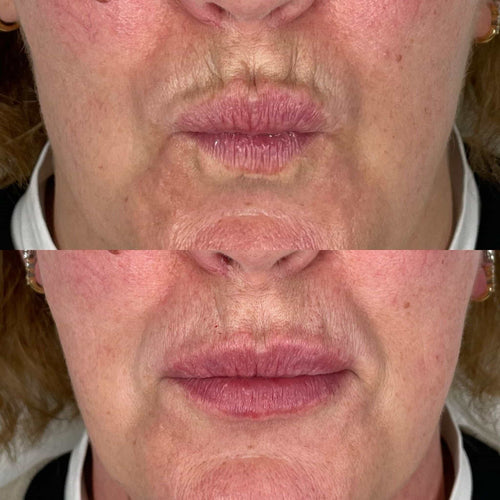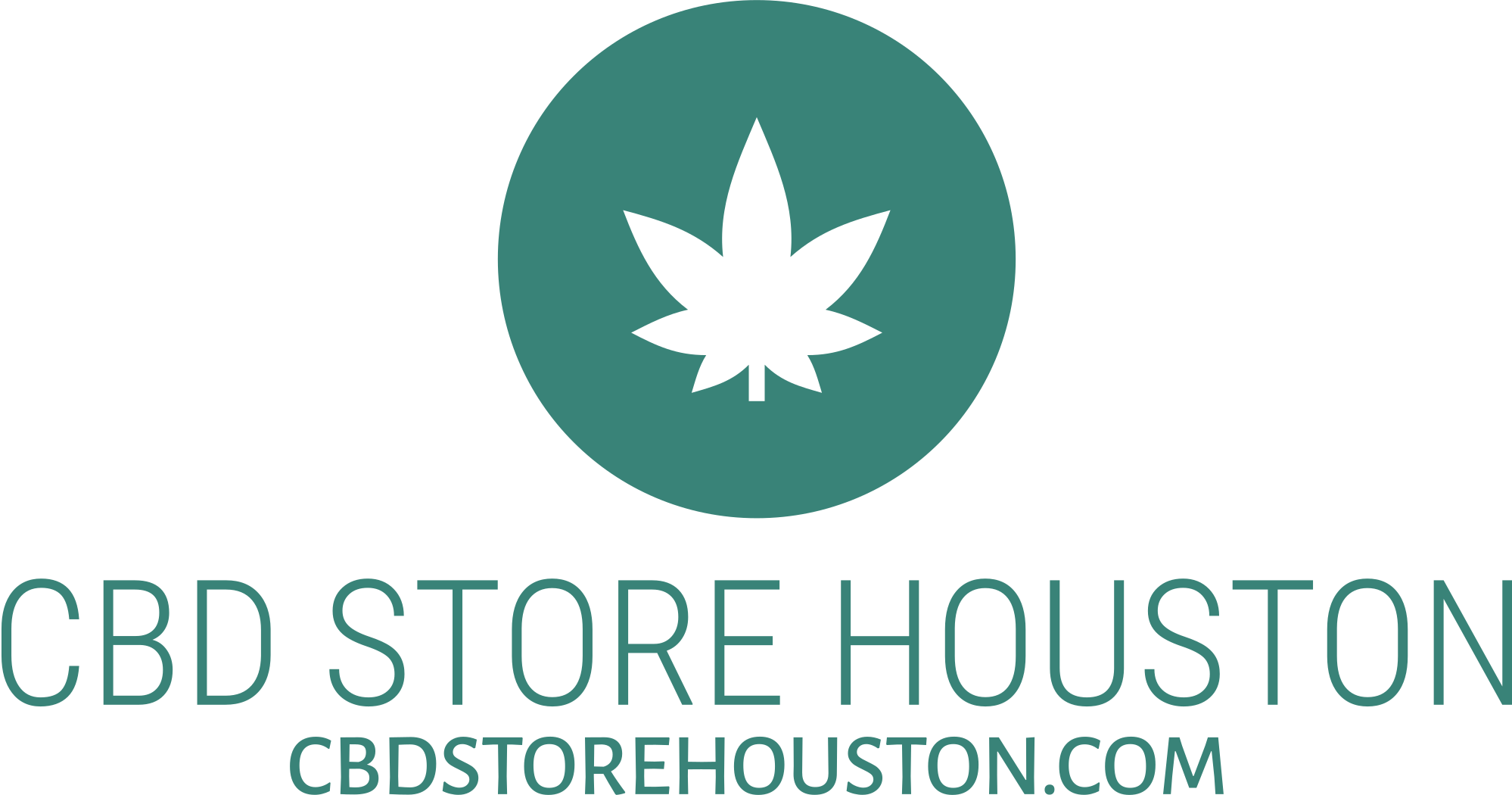Reserve Your Dermal Filler Consultation with Dr. Laura Geige
Pre-Treatment Preparations
Choosing Your Injector
Pre-treatment preparations are crucial for minimizing bruising after lip filler injections. Firstly, avoid blood-thinning medications like aspirin, ibuprofen, and supplements like fish oil for at least a week prior to your appointment. These can increase bleeding risk.
Additionally, ensure you’re well-hydrated in the days leading up to the procedure. Hydration helps improve circulation and reduce swelling.
On the day of your appointment, avoid consuming alcohol as it can also thin your blood.
Choosing the right injector is paramount for a safe and successful experience. Look for a licensed and experienced professional who specializes in dermal fillers, ideally with specific expertise in lip augmentation.
Consult with Dr. Laura Geige for Dermal Fillers at It’s Me and You Clinic
Read online reviews and ask friends or family for recommendations. During your consultation, discuss your desired outcome, medical history, and any concerns you may have. A good injector will listen attentively, answer your questions thoroughly, and provide realistic expectations about the results.
Don’t hesitate to ask to see before-and-after photos of their previous lip filler work to gauge their aesthetic style and skill level.
Remember, choosing a qualified and experienced injector can significantly reduce your risk of complications, including bruising.
Minimizing Swelling with Diet and Exercise
Pre-treatment preparations are crucial for minimizing bruising and swelling after lip filler injections.
Here are some steps to take before your appointment:

-
Avoid blood thinners: Discontinue aspirin, ibuprofen, fish oil, and other supplements that can increase bleeding risk at least a week before your treatment. Consult your doctor about any medications you’re taking.
-
Hydrate: Drink plenty of water in the days leading up to your appointment. Proper hydration helps improve circulation and tissue elasticity, which can minimize bruising.
-
Avoid alcohol: Alcohol can thin blood and increase inflammation. Steer clear of alcoholic beverages for a few days before and after your treatment.
-
Eat a healthy meal: Don’t skip meals on the day of your appointment. A balanced meal provides nutrients essential for healing and recovery.
After your lip filler injection, certain dietary and exercise habits can further help minimize swelling:
-
Cold compresses: Apply a cold compress or ice pack wrapped in a towel to the treated area for 15-20 minutes at a time, several times a day. This helps constrict blood vessels and reduce inflammation.
-
Elevate your head: Sleep with your head slightly elevated to minimize fluid buildup in your face.
-
Avoid strenuous exercise: Limit physical activity that causes excessive sweating or raises your heart rate for a few days after your treatment. This can promote blood flow and increase swelling.
A healthy diet rich in antioxidants, vitamin C, and zinc can support tissue healing and minimize inflammation:
-
Fruits and vegetables: Load up on colorful fruits and vegetables like berries, citrus fruits, leafy greens, and bell peppers. These are packed with antioxidants that help combat free radical damage.
-
Lean protein: Include lean protein sources in your diet, such as chicken, fish, beans, and lentils. Protein is essential for tissue repair and rebuilding.
-
Hydration: Continue to drink plenty of water throughout the day to flush out toxins and keep your body hydrated.
Immediate Post-Treatment Care
Applying a Cold Compress
Immediate post-treatment care is crucial for minimizing bruising and swelling after lip filler injections.
One of the most effective methods for reducing post-treatment inflammation is applying a cold compress.
Here’s how to do it correctly:
-
Choose the right tool.
-
Use an ice pack or a bag of frozen peas wrapped in a thin towel.
-
Avoid direct contact with your skin as this can cause frostbite.
-
Apply for short intervals.
-
Place the cold compress on your lips for 10-15 minutes at a time, several times a day.
-
Take breaks between applications to allow your skin to warm up.
-
Continue applying throughout the first 24-48 hours.
The cold temperature constricts blood vessels, which helps to reduce swelling and inflammation.
It also numbs the area, minimizing any discomfort you may experience.
Elevating Your Head
Immediate post-treatment care is crucial for minimizing bruising and promoting optimal healing after lip filler injections.
One of the most effective strategies is elevating your head while resting.
This simple technique helps reduce blood flow to the treated area, thus minimizing swelling and bruising.
Aim to sleep with your head elevated on an extra pillow or two for at least the first 24-48 hours after your procedure.
Continuing to elevate your head throughout the day can further accelerate healing and reduce discomfort.

By keeping your head elevated, you create a less favorable environment for blood to pool in your lips, which is a major contributor to bruising.
Arnica Gel or Cream
Immediately after a lip filler procedure, it’s important to prioritize minimizing swelling and bruising.
Follow these steps for optimal post-treatment care:
-
Apply a cold compress: Use a gel ice pack or a bag of frozen peas wrapped in a towel and apply it to the treated area for 10-15 minutes at a time, several times a day. This helps reduce inflammation and constrict blood vessels, minimizing swelling and bruising.
-
Elevate your head: Sleeping with an extra pillow propped under your head can help drain excess fluids from the treated area, further reducing swelling.
-
Avoid strenuous activity: Refrain from intense workouts or activities that elevate your heart rate for at least 24-48 hours. This prevents excessive blood flow to the face and minimizes the risk of bruising.
-
Stay hydrated: Drinking plenty of water helps flush toxins and aids in the healing process.
-
Avoid touching or rubbing your lips: Resist the urge to constantly touch or rub the treated area, as this can irritate the skin and potentially introduce bacteria.
-
Applying a cold compress for 10-15 minutes at a time, several times a day, can help constrict blood vessels, reduce swelling, and minimize bruising.
-
Use a gel pack or a bag of frozen peas wrapped in a thin towel to avoid direct contact with your skin.
-
Arnica is available in cream, gel, or pill form. Follow the product instructions carefully.
-
Some people find that applying arnica topically a few days before their procedure can be helpful.
-
Drinking plenty of water helps flush toxins from the body and supports healing.
-
Alcohol can thin the blood and increase bruising, while smoking impairs circulation and hinders healing.
<
Arnica gel or cream is often recommended for its potential to reduce bruising and swelling. Arnica montana is a herb believed to have anti-inflammatory properties.
It is important to note that while arnica may be helpful, individual results may vary.
If you experience excessive bruising or other concerning symptoms after lip filler treatment, consult with your healthcare provider.
Additional Tips for Reducing Bruising
Makeup to Mask Discoloration
To minimize bruising after lip filler injections, apply a cold compress immediately afterward. This helps constrict blood vessels and reduce swelling.
Avoid strenuous activity for the first 24 hours to prevent increased blood flow to the treated area.
Elevate your head while sleeping for the first few nights to minimize swelling.
Certain supplements like vitamin C and bromelain can help reduce inflammation and bruising.
Arnica cream or gel can also be applied topically to the bruised area to promote healing and reduce discoloration.
Once the initial swelling has subsided, makeup can help camouflage any remaining discoloration. A concealer that is one or two shades lighter than your skin tone can effectively cover bruises.
For deeper bruising, a color-correcting product in peach or orange can neutralize the blue or purple tones. Apply it before concealer for better coverage.
Set your makeup with a translucent powder to ensure it lasts and doesn’t smudge.
Remember to avoid touching or picking at the treated area, as this can irritate the skin and delay healing.
Arrange a Dermal Filler Consultation with Dr. Laura Geige
Patience and Time
In addition to the tips already discussed, here are some extra strategies you can employ to minimize bruising after lip filler injections and promote faster healing:
**Cold Compresses:**
Arnica:
This natural remedy can help reduce inflammation and bruising.
Elevate Your Head:**
Sleeping with your head slightly elevated can help reduce fluid buildup and swelling, potentially minimizing bruising.
Hydration:**
**Healthy Diet: **
A balanced diet rich in fruits, vegetables, and antioxidants can contribute to overall well-being and promote faster healing.
**Avoid Alcohol and Smoking:**
**Patience is Key:**
Remember that bruising after lip filler injections is a normal part of the healing process. It typically resolves within a few days to a week, but individual healing times may vary. Be patient and follow your injector’s post-treatment instructions carefully.
**Communicate with Your Injector:**
If you experience excessive bruising or any other concerns, don’t hesitate to contact your injector. They can offer guidance and support throughout the healing process.
One One Three Online Making Memories London Emily Patricia Fae Humboldt Apothecary CBD Arielle Likes to Cook
- Why Breadcrumbing Can Be A Form Of Emotional Manipulation - November 12, 2025
- What Is The Alternative To Filler For Nasolabial Folds? - November 10, 2025
- What Age Do You Have To Be To Get Lip Filler - November 7, 2025
